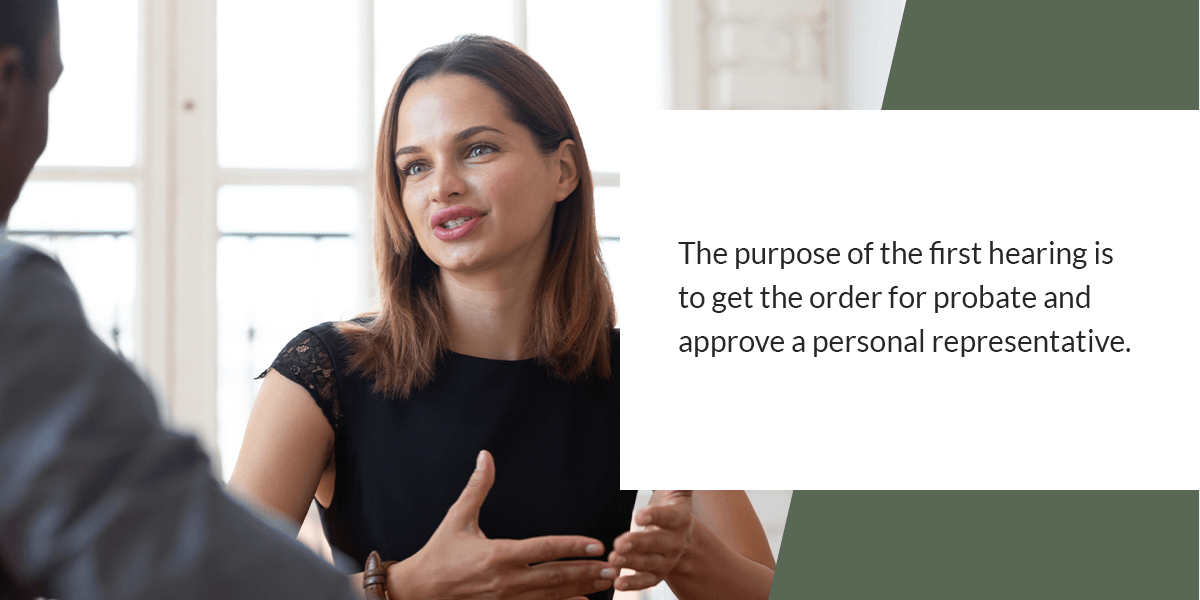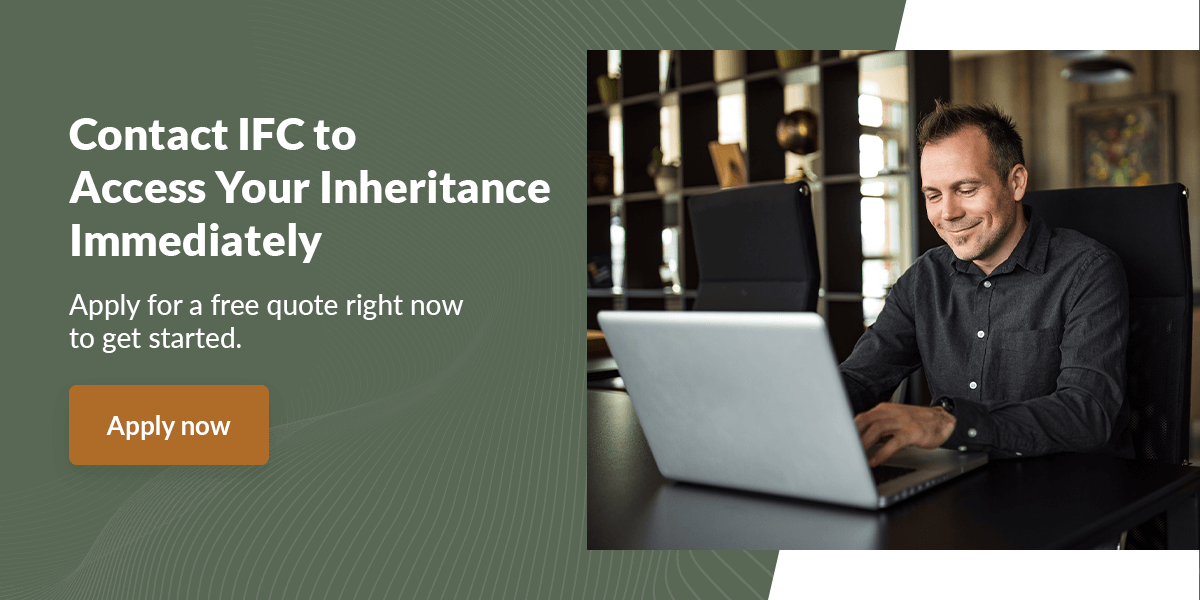
Immediately following the death of a family member or friend who had you in their will, you must begin the probate court process. Understanding how to handle the necessary paperwork and what is involved, such as attending hearings, can help you feel peace as you grieve your loved one.
What Is Probate Court?
A probate case is a legal process where the money of a person who recently passed away is assessed and processed. A probate court is the part of the judicial system that ensures the deceased person’s debts are paid and assets are distributed according to their wishes.
This procedure starts when the estate executor or personal representative files the probate petition in the county the person lived in. The entire process typically takes nine to 12 months but can take longer under certain circumstances. In most cases, beneficiaries will not be given cash or assets until taxes and debts are paid and the court approves the final distribution.
Key Probate Court Terms
If you’ll be involved in a probate case, you should know these terms:
- Decedent: The person who passed away.
- Estate: The money and property the decedent left behind.
- Will: A legally binding document the decedent signed before their death that outlines their wishes.
- Heirs/beneficiaries: Individuals who will inherit part of the estate.
- Executor: The person the decedent designated to handle their estate.
- Personal representative/administrator: The person the court designates to handle the estate, typically the executor named in the will, but not always.
- Real property: Land or homes attached to land.
- Personal property: Movable property not attached to land.
- Inheritance: The cash and assets that an heir/beneficiary will receive after probate closes.
- Final distribution: The point where heirs/beneficiaries are able to receive their inheritances.
What Happens at the First Probate Court Hearing?
After the executor files the petition for probate, there will be an initial probate court hearing. All heirs, creditors and other interested parties will need to be notified of the hearing. Someone will need to submit as much documentation as they can gather about the decedent and their estate.
In some cases, the executor may not even need to go to the first hearing. The purpose of the first hearing is to get the order for probate and approve a personal representative. The judge will also usually outline the duties required of the executor.
Grant of Probate
At the hearing, the judge will decide if they can grant probate. The grant of probate, which allows the executor to perform their tasks, is often necessary to continue with the process. Some estates may not need to go through this step, though, depending on their size and type of assets. It is possible for a judge to ask for a continuance if they need additional information, so be sure to acquire all the required data first. The documentation needed varies by each court.
Executor Approval
The judge will appoint a personal representative of the estate. This individual is typically the person named in the will as the executor. However, there may be cases where the executor does not want to be the representative or no one is named. There can also be cases where someone disputes the person named as executor. If so, the court will appoint a personal representative for the estate.
The executor has no authority until approved by the court. The approval comes within documents issued by the court often referred to as the Letters of Administration.
What Happens Next?
Once the court processes all the information and the judge appoints the personal representative, the individual can begin to fulfill their duties. The letters issued after the first hearing will contain a list of required tasks for the estate representative. The executor will have to appraise all assets and may need to liquidate some. The representative may need to transfer titles, pay creditors and file taxes. They must hold on to any receipts and documents pertaining to the tasks they completed.
The executor will file for final distribution after they complete all their duties, which prompts the second probate court hearing.
What Happens at the Second Probate Court Hearing?
The petition for final distribution must be filed after all duties are completed. Then the second and last hearing will be set. This typically ends up being around nine months to a year after the first petition was filed.
Judge Approval
The personal representative or executor will provide details of everything they did. The judge will review their actions to ensure each item is in order and that the executor handled their tasks properly and on time. They will check that taxes are paid, debts are settled and the will is being followed to the greatest extent. If the judge is satisfied, they will issue the final order.
Final Order
Lastly, the judge will close the estate and sign the order for distribution. At this point, any beneficiaries can receive the money and assets that the decedent allotted to them. After that, the executor’s responsibility is over.
Contact IFC to Access Your Inheritance Immediately
Probate court can take a long time, even for regular cases. If there’s an issue, a probate case could last for longer than a year. Sometimes, the executor and beneficiaries may need cash before probate is over. This is where Inheritance Funding comes in.
We are the oldest and largest provider of inheritance cash advances. The process is simple and quick, and you don’t have to do anything after you receive the money. You can obtain cash to use however you’d like right away. It’s not an inheritance loan — you don’t have to pay anything back. We assess the estate and give you an advance of the money you would have received after the court closes probate.
You can receive money immediately. Our inheritance advance process is fast and easy. We will start with an initial consultation where we discuss the inheritance and how much you would like to access today. We then quickly gather any additional information needed from the probate court and the personal representative.
Once we’ve gathered the necessary information to confirm your inheritance, we approve and fund the advance the same day. You are guaranteed to receive the lowest fee in the industry. We then wait months or years for the estate to finally close and distribute money. We’re paid directly by the estate and you will receive any remainder of your inheritance.
If the estate closes and it’s not enough to pay us, we simply take the loss. This means there is no risk to you. Apply for a free quote right now to get started.



